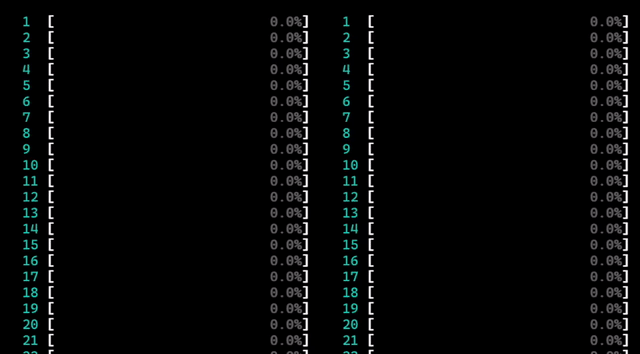6.0 KiB
mold: A Modern Linker
mold is a faster drop-in replacement for existing Unix linkers. It is several times faster than LLVM lld linker, the second-fastest open-source linker which I originally created a few years ago. mold is created for increasing developer productivity by reducing build time especially in rapid debug-edit-rebuild cycles.
Here is a performance comparison of GNU gold, LLVM lld, and mold for linking final debuginfo-enabled executables of major large programs on a simulated 8-core 16-threads machine.
| Program (linker output size) | GNU gold | LLVM lld | mold |
|---|---|---|---|
| Chrome 96 (1.89 GiB) | 53.86s | 11.74s | 2.21s |
| Clang 13 (3.18 GiB) | 64.12s | 5.82s | 2.90s |
| Firefox 89 libxul (1.64 GiB) | 32.95s | 6.80s | 1.42s |
mold is so fast that it is only 2x slower than cp on the same
machine.
Feel free to file a bug if you find mold is not faster than other linkers.
Why does the speed of linking matter?
If you are using a compiled language such as C, C++ or Rust, a build
consists of two phases. In the first phase, a compiler compiles a
source file into an object file (.o files). In the second phase,
a linker takes all object files to combine them into a single executable
or a shared library file.
The second phase takes a long time if your build output is large. mold can make it faster, saving your time and keeping you from being distracted while waiting for a long build to finish. The difference is most noticeable when you are in rapid debug-edit-rebuild cycles.
Install
Binary packages for the following distros are currently available.
How to build
mold is written in C++20, so if you build mold yourself, you need a very recent version of GCC or Clang. I'm using Ubuntu 20.04 as a development platform. In that environment, you can build mold by the following commands.
Install dependencies
Ubuntu 20.04 and later / Debian 11 and later
sudo apt-get update
sudo apt-get install -y build-essential git clang cmake libstdc++-10-dev libssl-dev libxxhash-dev zlib1g-dev
Fedora 34 and later
sudo dnf install -y git clang cmake openssl-devel xxhash-devel zlib-devel libstdc++-devel
Compile mold
git clone https://github.com/rui314/mold.git
cd mold
git checkout v1.0.0
make -j$(nproc)
sudo make install
By default, mold is installed to /usr/local/bin.
If you don't use a recent enough Linux distribution, or if for any reason make
in the above commands doesn't work for you, you can use Docker to build it in
a Docker environment. To do so, just run ./build-static.sh in this
directory instead of running make -j$(nproc). The shell script creates a
Ubuntu 20.04 Docker image, installs necessary tools and libraries to it,
and builds mold as a statically-linked executable.
make test depends on a few more packages. To install, run the following commands:
sudo dpkg --add-architecture i386
sudo apt update
sudo apt-get install bsdmainutils dwarfdump libc6-dev:i386 lib32gcc-10-dev libstdc++-10-dev-arm64-cross gcc-10-aarch64-linux-gnu g++-10-aarch64-linux-gnu
How to use
On Unix, the linker command (which is usually /usr/bin/ld) is
invoked indirectly by cc (or gcc or clang), which is typically
in turn indirectly invoked by make or some other build system command.
A classic way to use mold:
clangbefore 12.0: pass-fuse-ld=<absolute-path-to-mold-executable>;- clang after 12.0: pass
--ld-path=<absolute-path-to-mold-executable>; - gcc:
--ld-pathpatch has been declined by GCC maintainers, instead they advise to use a workaround: create directory<dirname>, thenln -s <path-to-mold> <dirname>/ld, and then pass-B<dirname>(-Btells GCC to look forldin specified location).
It is sometimes very hard to pass an appropriate command line option
to cc to specify an alternative linker. To deal with the situation,
mold has a feature to intercept all invocations of ld, ld.lld or
ld.gold and redirect it to itself. To use the feature, run make
(or another build command) as a subcommand of mold as follows:
mold -run make <make-options-if-any>
Here's an example showing how to link Rust code when using the cargo package manager:
mold -run cargo build
Internally, mold invokes a given command with LD_PRELOAD environment
variable set to its companion shared object file. The shared object
file intercepts all function calls to exec(3)-family functions to
replace argv[0] with mold if it is ld, ld.gold or ld.lld.
mold leaves its identification string in .comment section in an output
file. You can print it out to verify that you are actually using mold.
readelf -p .comment <executable-file>
String dump of section '.comment':
[ 0] GCC: (Ubuntu 10.2.0-5ubuntu1~20.04) 10.2.0
[ 2b] mold 9a1679b47d9b22012ec7dfbda97c8983956716f7
If mold is in .comment, the file is created by mold.
Why is mold so fast?
One reason is because it simply uses faster algorithms and efficient data structures than other linkers do. The other reason is that the new linker is highly parallelized.
Here is a side-by-side comparison of per-core CPU usage of lld (left) and mold (right). They are linking the same program, Chromium executable.
As you can see, mold uses all available cores throughout its execution and finishes quickly. On the other hand, lld failed to use available cores most of the time. In this demo, the maximum parallelism is artificially capped to 16 so that the bars fit in the GIF.
For details, please read design notes.


